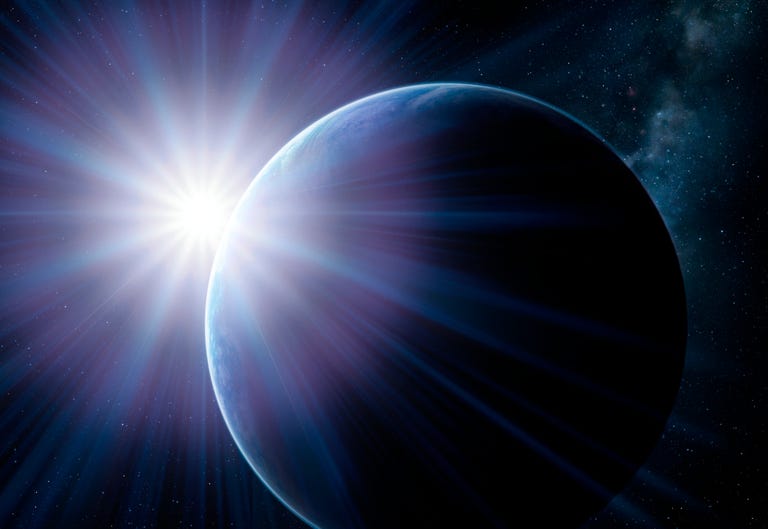Scientists Discover Almost Completely Black Planet
The dark planet only reflects 1 percent of the light hitting it.
By Avery Thompson
Getty ImagesDETLEV VAN RAVENSWAAY
Astronomers have found plenty of exoplanets—planets orbiting other stars—over the last few years, and usually they can measure some of the properties of these planets. At the very least, astronomers can generally measure the size of the planet and how fast it orbits, and often they can figure out a planet's mass as well.
But for one planet 466 million light-years away, there’s almost nothing that astronomers can measure. That’s because this planet is one of the blackest worlds ever discovered.
The planet, WASP-104b, was discovered in 2014 by the Kepler Space Telescope, although its dark nature was only realized more recently. A team of scientists analyzed old Kepler data to learn as much as they could about WASP-104b.
They didn't find much. WASP-104b is a so-called ‘Hot Jupiter,’ which is a Jupiter-sized planet that orbits extremely close to its host star. This proximity means that a year on WASP-104b is only 1.76 days. It also means that WASP-104b is tidally locked, so that one side of the planet is always facing toward its star.
The only other thing the researchers were able to determine about the mysterious planet is that WASP-104b absorbs between 97 and 99 percent of all light that hits it, which puts it among the darkest planets ever found. It’s likely that being tidally locked contributed to its dark nature: the night side is of course dark, but the day side is probably free of ice, clouds, or anything else that would reflect light. In addition, the researchers suspect the planet could have an atmosphere of sodium and potassium, which absorb most wavelengths of light.
It’s likely, however, that we’ll never really know exactly why WASP-104b is so dark. Up close, we might be able to learn more about the planet and what it’s made of, but from 466 million light-years away, it’s a wonder that we found it at all.
Source: LiveScience
No comments:
Post a Comment